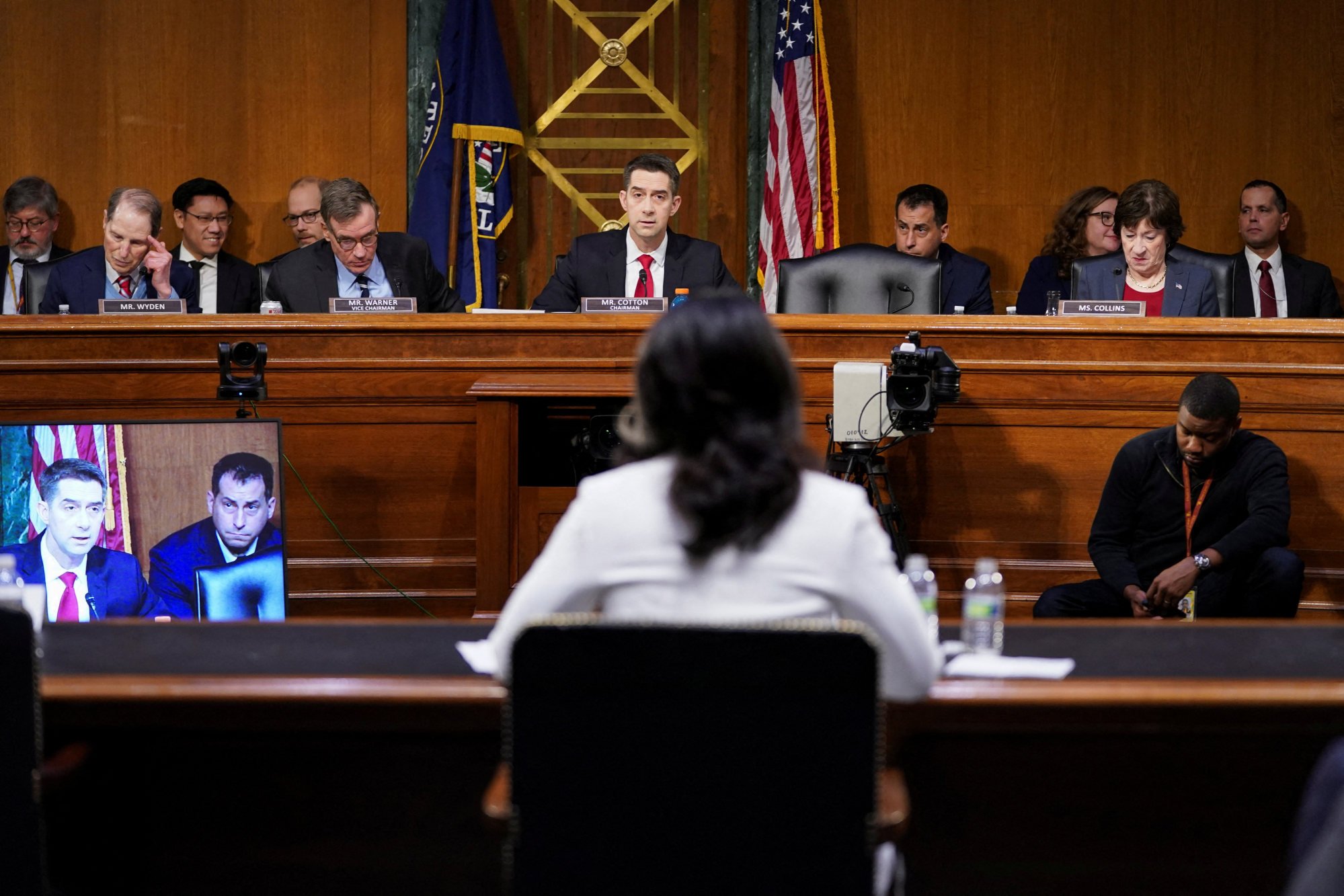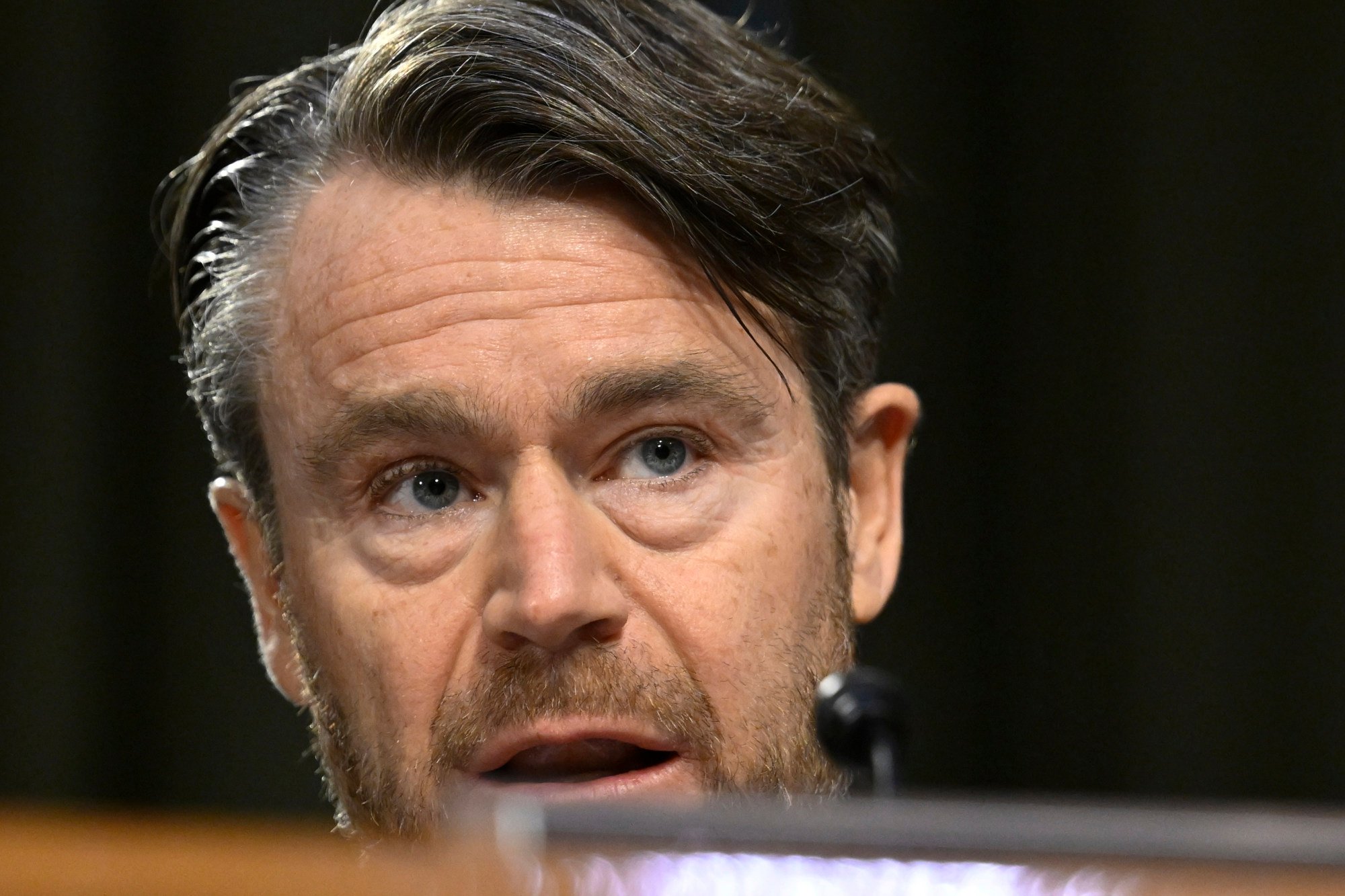The US Senate confirmed Tulsi Gabbard as President Donald Trump's director of national intelligence on Wednesday, with Republicans who had initially expressed concerns about her experience and judgment ultimately supporting her nomination.
Gabbard was an unexpected choice to head the country's 18 different intelligence agencies, considering her past statements expressing understanding for Russia, her meeting with now-ousted Syrian President Bashar al-Assad, and her earlier support for Edward Snowden, a government whistleblower.
Tulsi Gabbard, a military veteran and former Democratic congresswoman from Hawaii, was confirmed by a 52-48 vote, with Democrats opposed in the sharply divided Senate where Republicans hold a slim majority. The only "no" vote from a Republican came from Senator Mitch McConnell of Kentucky.
She is set to assume the top intelligence post as Trump works to reorganize significant parts of the federal government.
Intelligence agencies, including the CIA, are reportedly offering voluntary resignations to their employees, while cybersecurity specialists have expressed concerns that Elon Musk's Department of Government Efficiency may be granted access to sensitive government databases containing classified information about intelligence operations.
The Office of the Director of National Intelligence was established in response to the intelligence shortcomings revealed by the September 11 attacks. Republicans have been increasingly critical of the office, arguing that it has become too big and politicized. Trump himself has long held a skeptical view of the country's intelligence agencies.

Republican senators who had expressed concerns about Gabbard's views on Snowden, Syria and Russia stated that they were convinced by her pledge to prioritize the office's primary responsibilities: overseeing federal intelligence operations and serving as the president's chief intelligence counselor.
"I still have some reservations about certain positions she has taken in the past, but I appreciate her intention to limit the agency's broad authority," said Republican Senator Lisa Murkowski, noting that Gabbard will bring "independent thinking" to the role.
Democrats pointed out that Gabbard lacked experience working for an intelligence agency and expressed concerns that her past views on Russia, Syria, and Snowden made her an unqualified candidate for the position.
"It's an insult to those who have risked their lives to serve in the intelligence community to have her confirmed to this position," said Democratic Senator Elissa Slotkin of Michigan, a former CIA analyst, about members of America's intelligence agency.
Until Republican backing was secured, it was uncertain whether Gabbard's nomination would be approved. Given the 53-47 split in the Senate, Gabbard required near-unanimous Republican support to vote in favor.
President Trump's base has put pressure on senators to support Trump's nominees, and Elon Musk, a close ally of the President, recently took to social media to label Republican Senator Todd Young a "puppet of the deep state". Young had expressed concerns about Gabbard, but later announced his support after speaking with Musk. The post was removed afterwards, and Musk later referred to Young as an ally.
Gabbard is a lieutenant colonel in the National Guard, having served two deployments in the Middle East, and she also ran for president in 2020. She does not have formal experience in intelligence and has never headed a government agency or department.
Gabbard's past endorsement of Snowden prompted particularly sharp questioning during her confirmation hearing. Snowden, a former National Security Agency contractor, fled to Russia after he was charged with leaking classified information about US surveillance programs.
Gabbard stated that while Snowden revealed crucial information about such programs which she believes are unconstitutional, he breached regulations regarding the protection of classified information. "Edward Snowden broke the law," she said.

Gabbard's 2017 visit with Assad sparked controversy. He was ousted after a brutal civil war in which he was accused of using chemical weapons.
Following her visit, Gabbard faced criticism that she had legitimized a dictator, and then there were more questions when she stated that she was uncertain that Assad had used such weapons.
Gabbard justified her meeting with Assad, stating that she utilized the chance to bring up his human rights record for discussion.
"I asked him direct questions about his own government's actions," Gabbard said.
She has frequently repeated Kremlin-backed claims to justify Russia's invasion of Ukraine. In the past, she opposed a crucial US surveillance program called Section 702, which enables authorities to collect communications of suspected foreign terrorists.
More Articles from SCMP
Asian Winter Games: Liu Mengting's second gold and Hong Kong's high-scoring curlers
6 people have been killed in a fire that broke out on a bus in southern China.
SCMP Best Bets: Punters pin hopes on Lucky galloper's Midas Touch
Alibaba teams up with Apple to develop AI capabilities for China's iPhones: sources
This article was first published on the South China Morning Post (www.scmp.com), a leading news source covering China and Asia.
Copyright 2025. South China Morning Post Publishers Ltd. All rights reserved.
